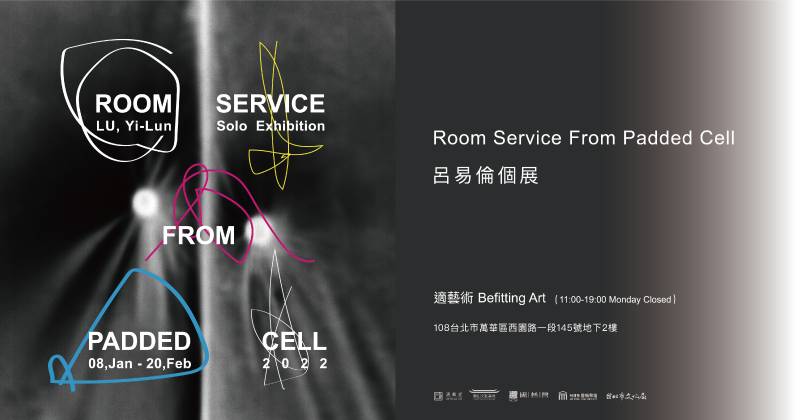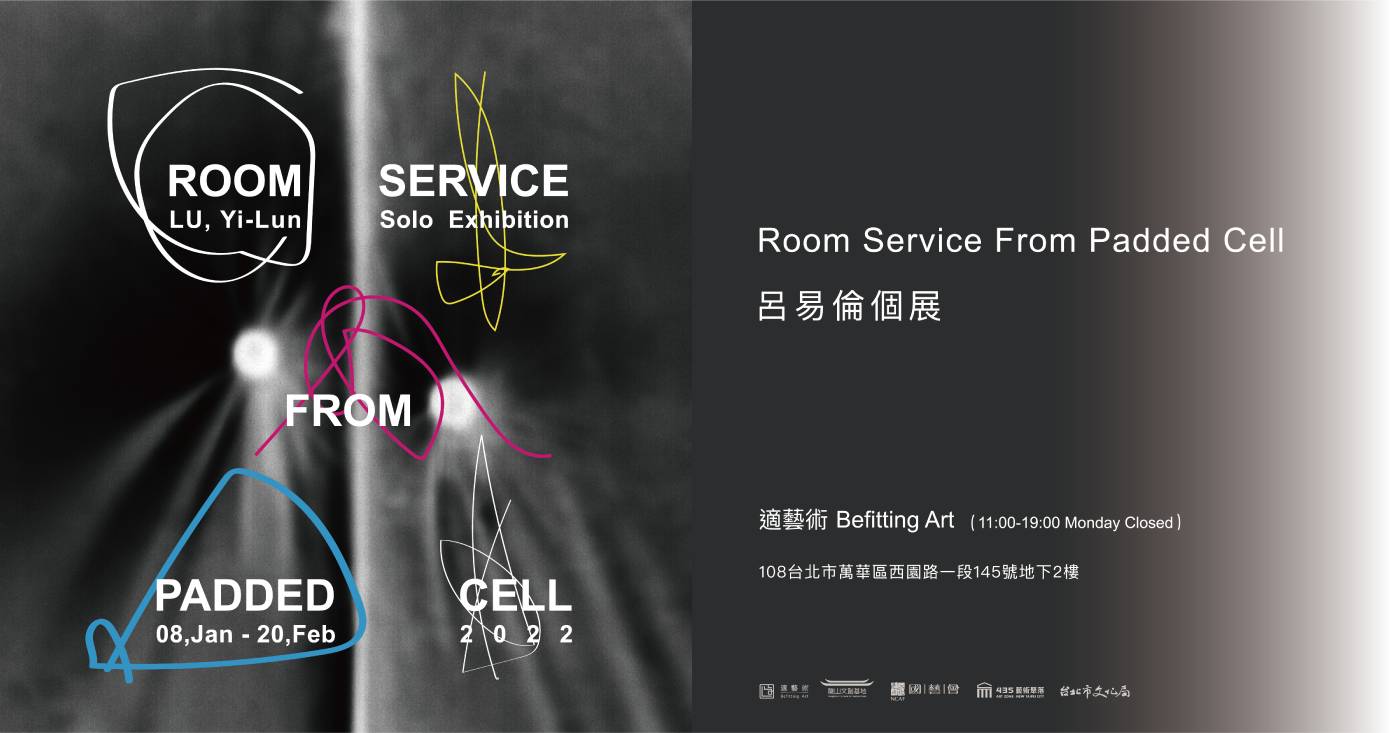適藝術 Befitting Art
【Room Service from Padded Cell】呂易倫個展

-
展期
日期:2022-01-08 ~ 2022-02-20
-
地點
台北市西園路一段145號B2龍山文創基地
-
相關連結
-
參展藝術家
呂易倫
-
Room Service from Padded Cell-呂易倫個展
Room Service from Padded Cell— Lu Yi-Lun Solo Exhibition
展覽日期|2022.01.08-02.20
展覽地點|適藝術 台北市西園路一段145號B2龍山文創基地
開放時間|週二至週日AM11:00~PM7:00
本展覽為呂易倫從2019年關注以家庭為單位的擴延社會結構,再到2020年參與了被標籤化的精神疾病社群合作計畫,在共創過程中引發對於精神疾病在以追尋制度正常化的社會結構下之處境探詢。再到2020下半年透過踏查進而拍攝了台灣多處不義遺址(Negative Heritage),逐步思考關於規範/偏移、正常/歪斜與服從/叛逆...等,常被俗世所二分法定義之價值觀,以及其關係空間在社會結構下的被邊緣狀態。
透過拍攝台灣不義遺址空間作品《光學失誤,從臨摹到臨床》,將從空間地理學的廣義角度逐步切入,再到以形塑空間氛圍的空間裝置《midnight》,將展示空間的白盒子調性轉向,成為新的「非再現」空間轉譯方法,《片面之詞》則是僅剩一張張眼神對視/峙、接觸的曖昧照片。然而上述種種也以展覽命題「room service」的概念被感性化,轉而以「padded cell」空間脈絡出發,欲探討一個關於精神狀態與政治邊緣化的象徵空間,在當代台灣社會經歷轉型正義後,如何從單純的影像地理學紀錄,深化至內在/公眾的集體精神結構召喚,並直接地面對殖民後的共殤與必要的收拾與醫療程序,透過不同的視角與創作形式,重新構建與觀眾對話的可能性。
This exhibition is Lu Yi-Lun’s exploration of the predicament of mental illnesses in a social framework that pursues systematic normalization. In 2019, Lu delved into the expanded social structure on the basis of families. In 2020, he participated in a cooperation project about labelled mental illness communities, in which the process of co-creation inspired the subject of this exhibition. Later in 2020, a field reconnaissance led Lu to film many negative heritage sites in Taiwan, and to further contemplate the dichotomous values of regulation/deviation, regularity/irregularity, obedience/rebellion, and the marginalization of their relative space in our social construct.
Through filming Taiwan’s negative heritage sites in “Optical Error, from Facsimile to Clinical Painting,” Lu tackled spatiography in a broad sense. In the atmosphere-shaping spatial installation, “midnight,” he transformed the tone of the plain white showroom into a new “non-representational” space re-interpretation. “One-sided Account” consists merely of ambiguous photos of eye contact.
All the aforementioned are emotionalized with the concept of the “room service” part of the exhibition title. The “padded cell” part, in turn, provides a spatial context to discuss the symbolic space of mental condition and political marginalization– how, after the Taiwanese society undergoes transitional justice, do we move from sheer visual geographical documentation to internalization and summoning a collective spirit. How do we face the post-colonial collective wound head-on, and through necessary debridement and healing procedures? With different perspectives and creative formats, Lu re-constructs the possibilities to communicate with the audience. -
REFERENCE
推薦展覽
view allGina Hong Guang (積吶虹光)
【三軍總醫院.TW|愛與和平 : 青天白日滿地「虹」心球與攝影之旅 - 積吶虹光LEF】TW|Love and Peace : Rainbows From All Over the World - Gina Hong Guang(LEF)
日期:2025-01-02 ~ 2025-03-21|台灣,台北市
54 days left